A top civil servant has denied the discharge of 25,000 of hospital patients to care homes without testing for coronavirus was “high risk and wrong”.
Up to 20,000 people are believed to have died from infections in care homes in the months since – but Sir Chris Wormald denied the department of health and social care had blundered.
“We believe that we took the right decision based on the right clinical evidence at the time,” he told a committee of MPs.
Download the new Independent Premium app
Sharing the full story, not just the headlines
“There were clearly risks in whatever we did in these circumstances,” Sir Chris said, adding there was “no no-risk option”.
But, under fierce questioning after the policy – which freed up hospital beds as the pandemic struck – was not changed until 15 April, he told MPs: “That’s not the same as saying we would do the same thing again.”
Civil servants also denied that funding for care homes was ever linked to their willingness to take Covid-19 patients from hospitals, under questioning from a Conservative MP.
The discharge policy has been widely-criticised as disastrous, anger growing after Matt Hancock, the health secretary, claimed “a protective ring” had been thrown round care homes – despite so many deaths.
Jeremy Hunt, his predecessor, said it was “extraordinary that no one appeared to consider the clinical risk to care homes despite widespread knowledge that the virus could be carried asymptomatically”.
At the Commons public accounts committee meeting, Nick Smith, a Labour MP, pointed out that guidance from as late as April 2 said care homes “could admit patients with Covid-19”.
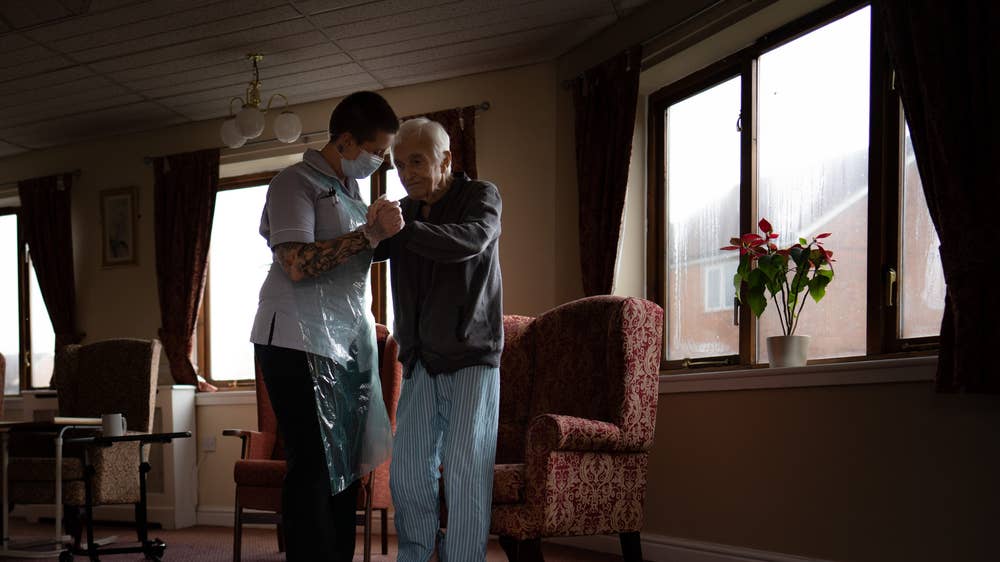
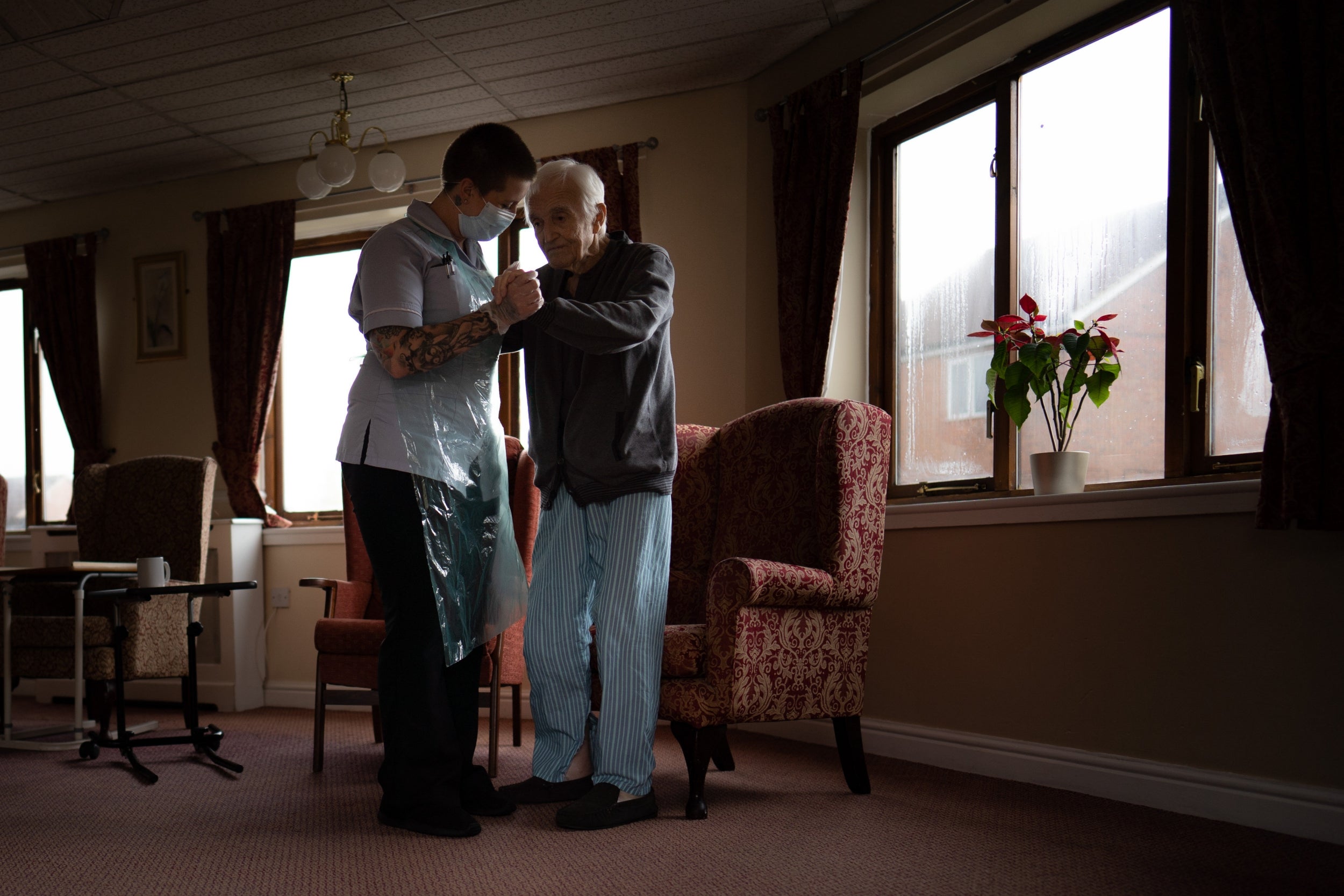
1/18
Jack Dodsley, 79, with a carer in PPE at Newfield Nursing Home
Tom Maddick/SWNS
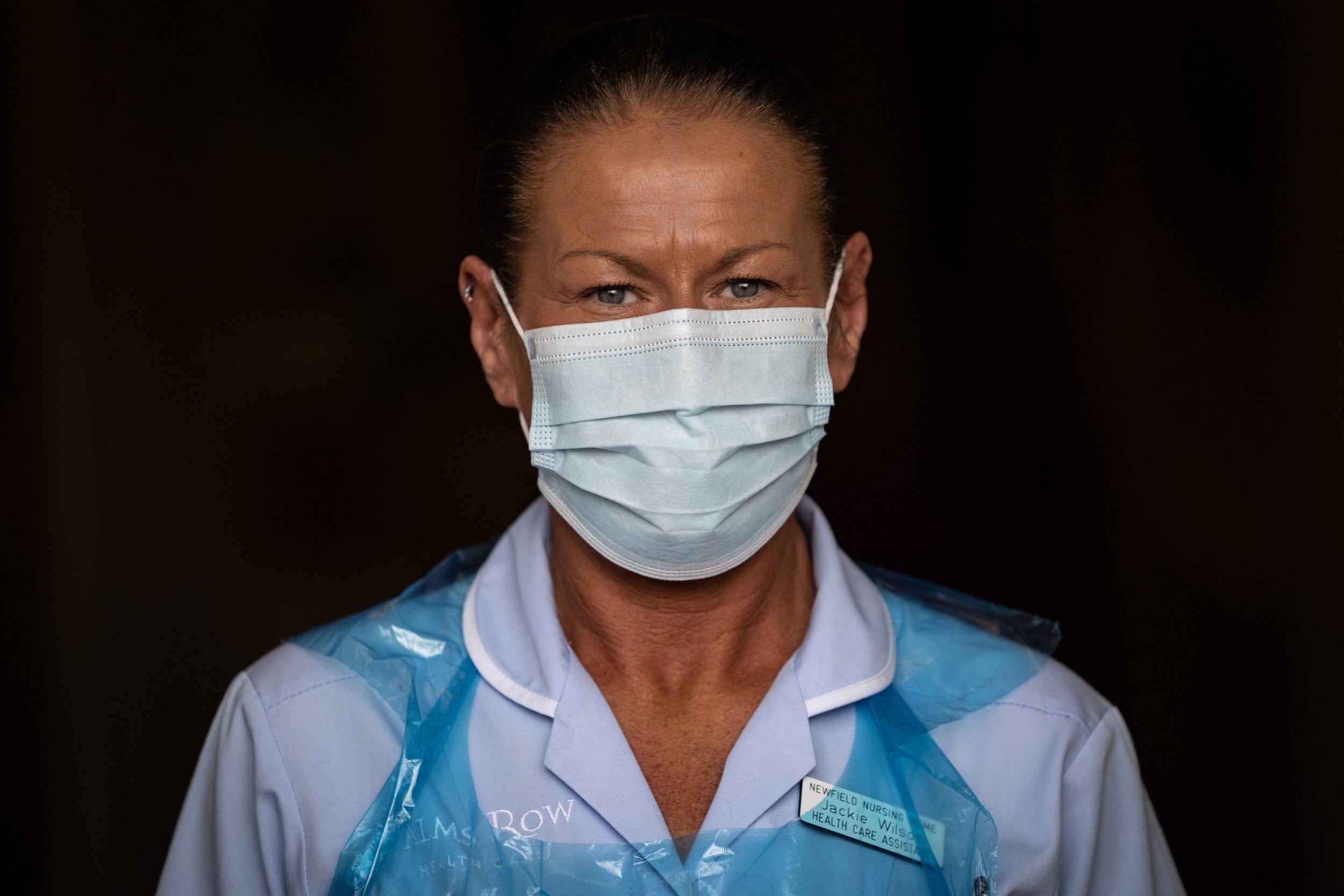
2/18
Jackie Wilson, a healthcare assistant, wearing PPE before going into rooms
Tom Maddick/SWNS
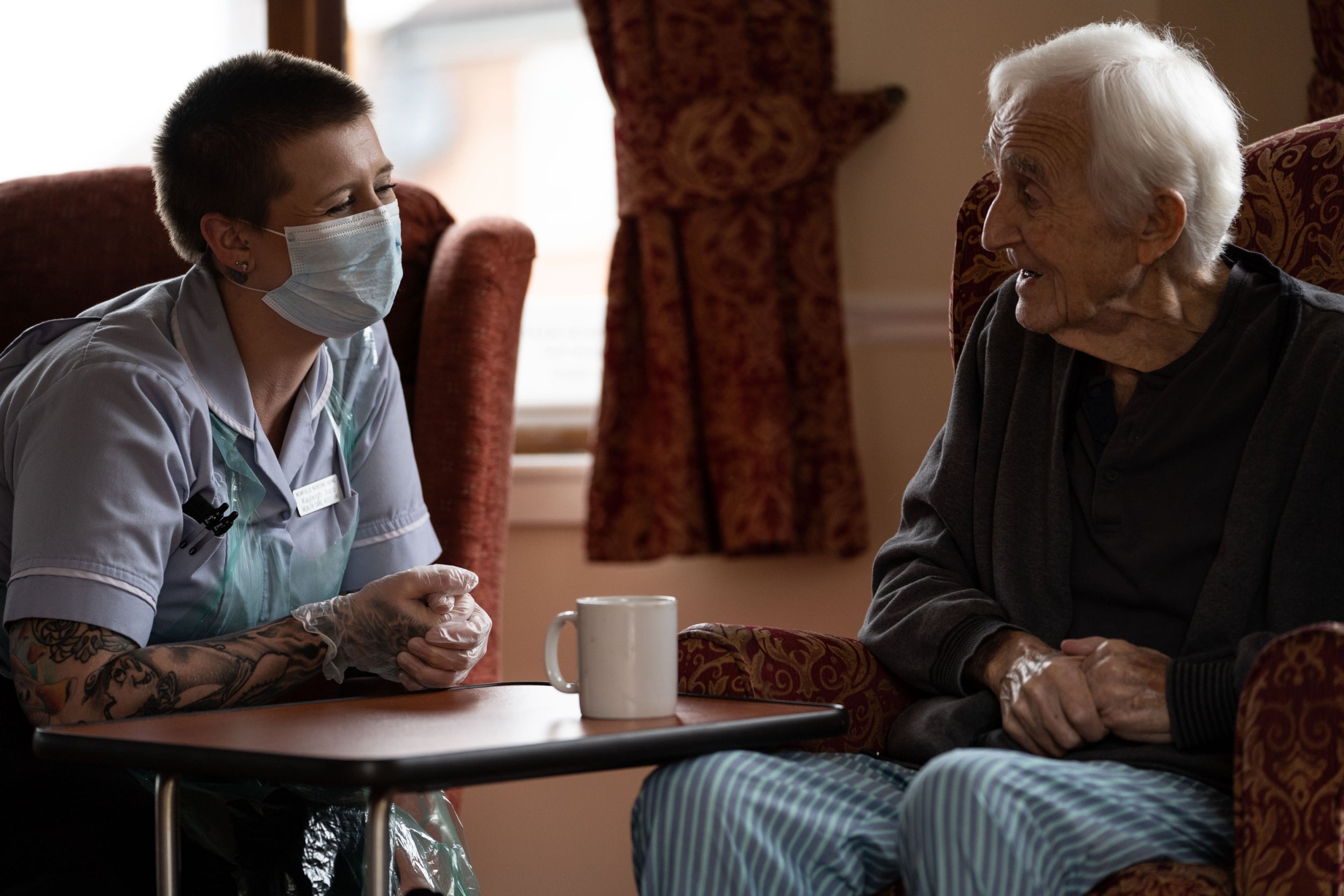
3/18
Jack Dodsley, 79, speaks to a carer at Newfield Nursing Home
Tom Maddick/SWNS
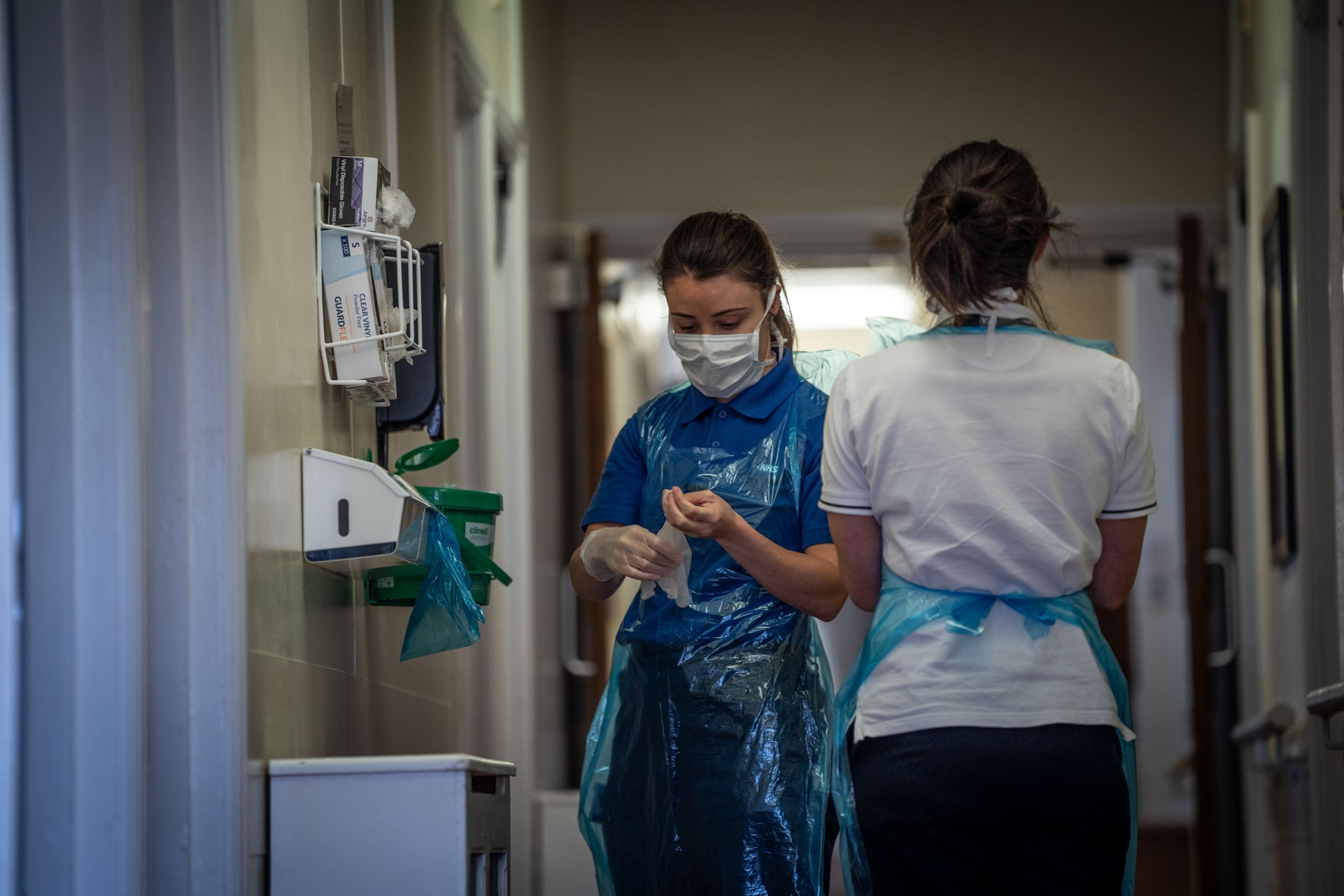
4/18
Carers working at Newfield Nursing Home
Tom Maddick/SWNS
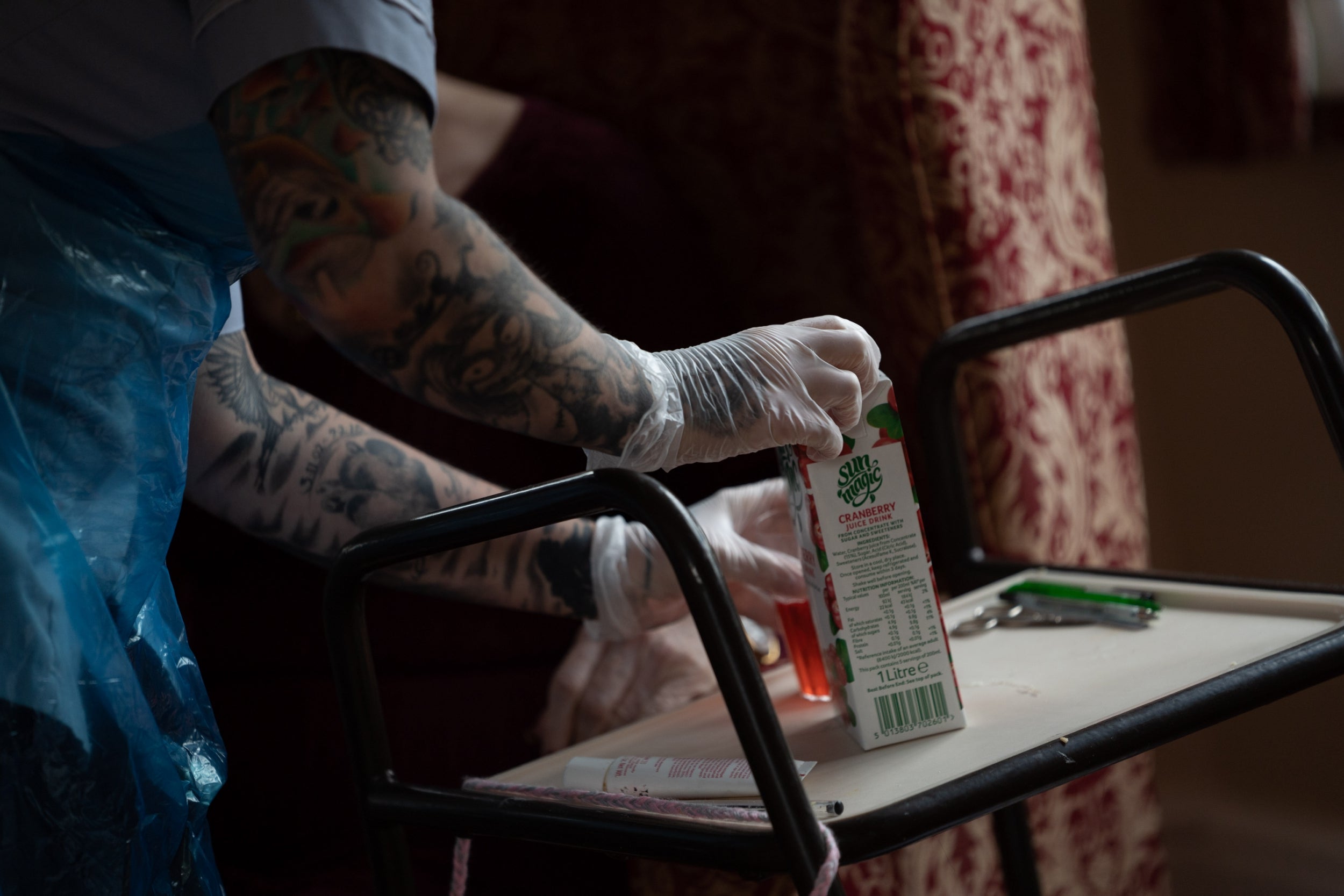
5/18
A care worker wearing PPE opens a drink carton
Tom Maddick/SWNS
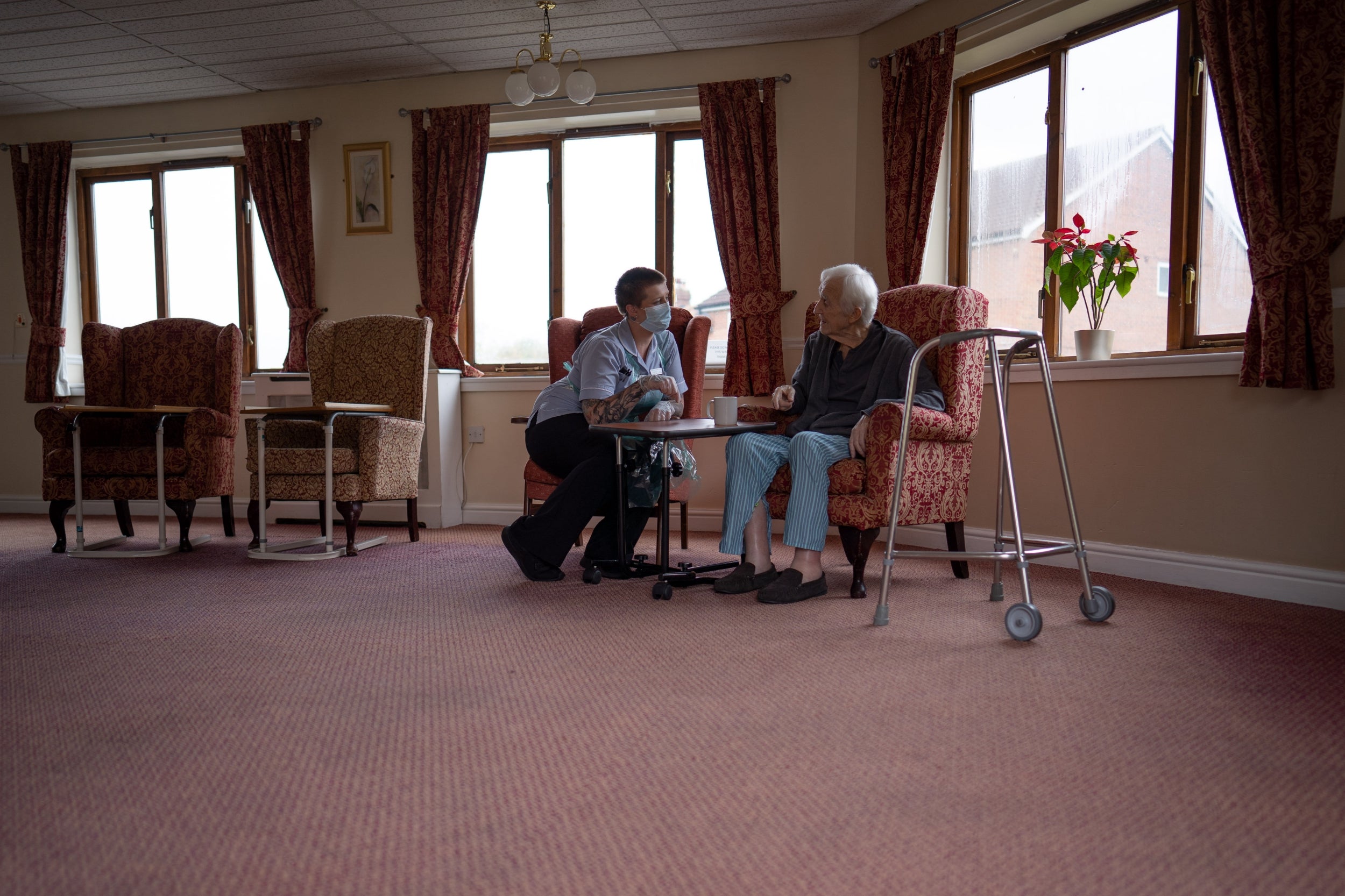
6/18
Jack Dodsley, 79, sits with a carer
Tom Maddick/SWNS
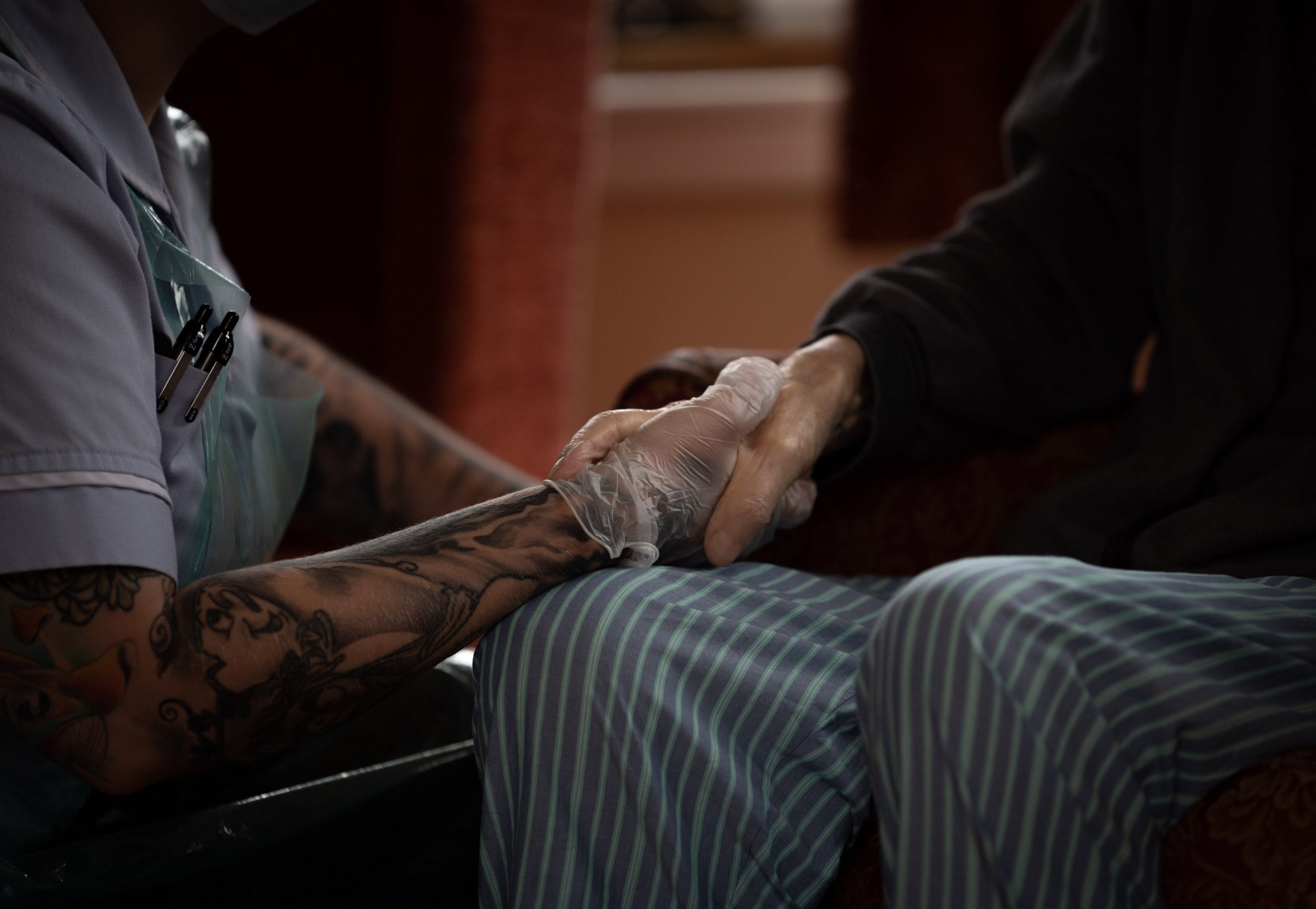
7/18
Jack Dodsley, 79, with a carer in PPE
Tom Maddick/SWNS
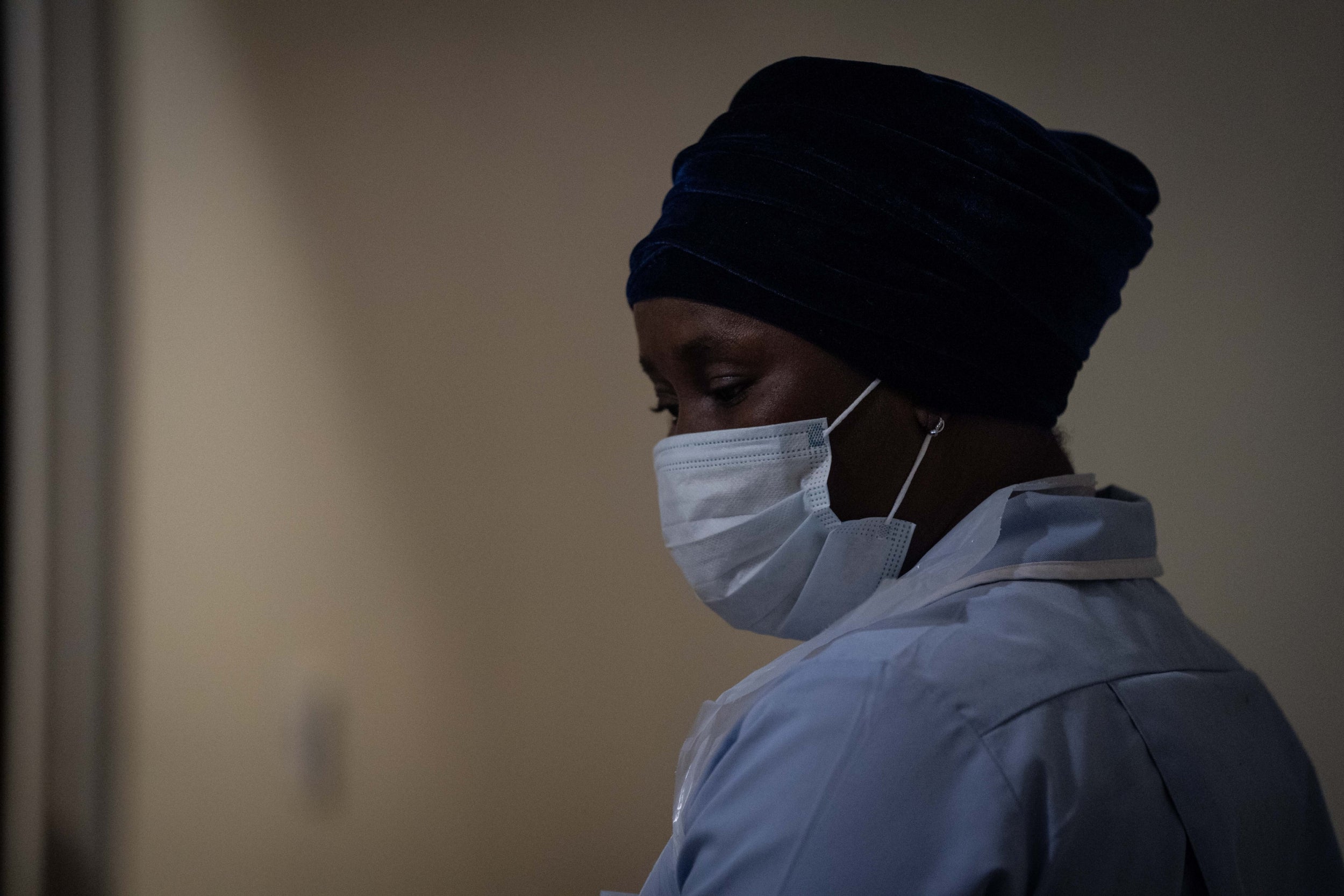
8/18
A care staff member wearing PPE
Tom Maddick/SWNS
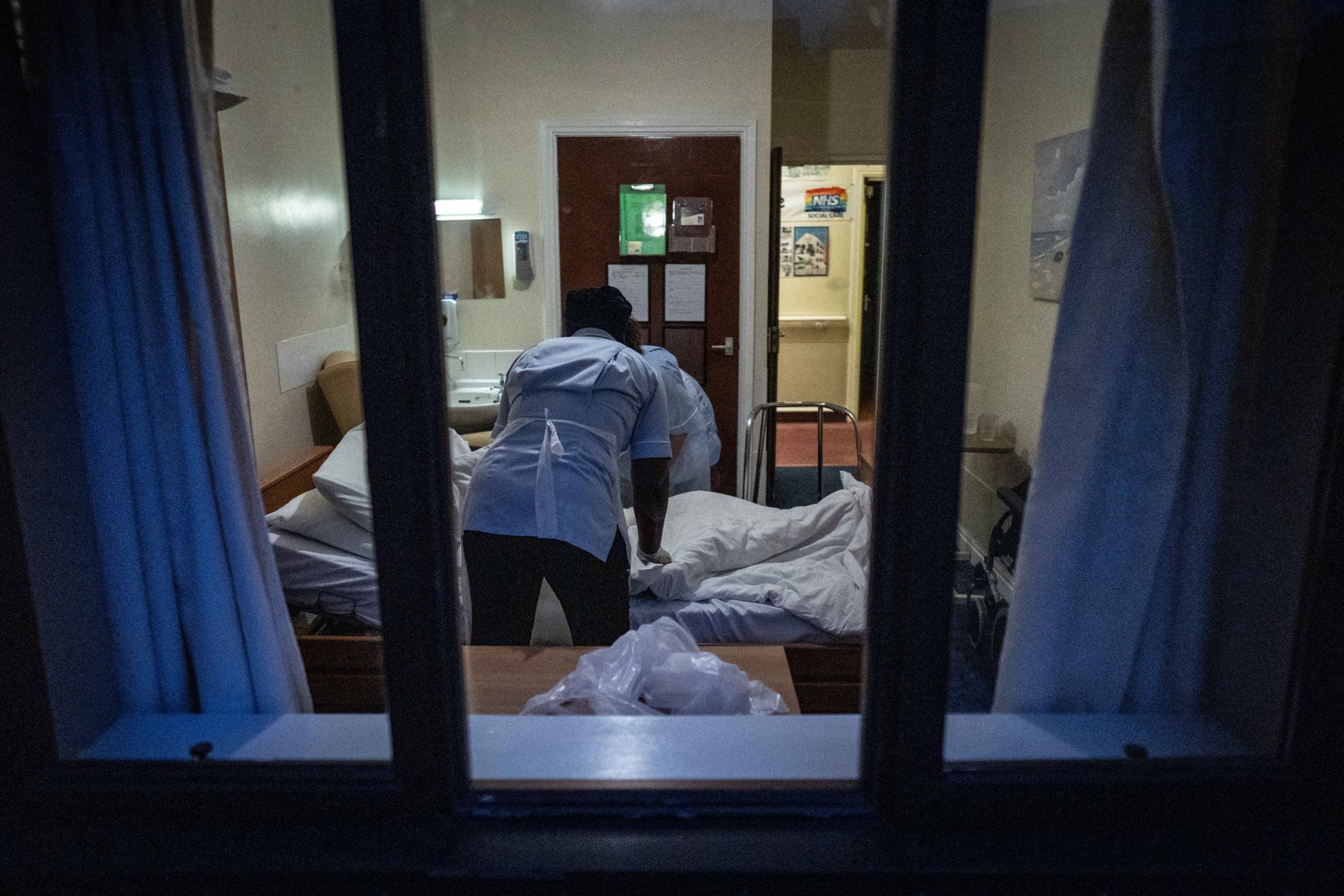
9/18
A staff member at Newfield Nursing Home looks after a resident
SWNS
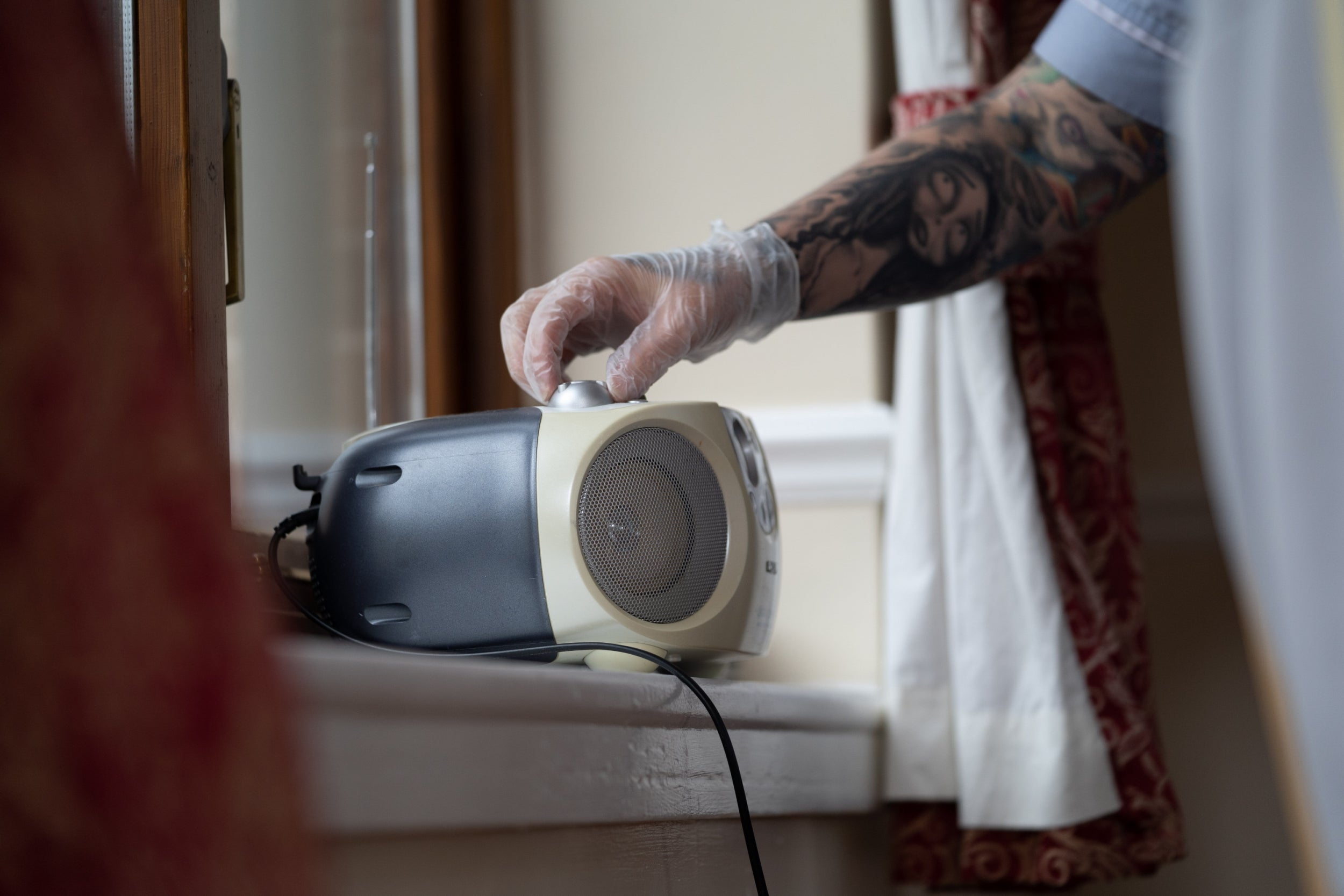
10/18
A carer wearing PPE uses a speaker
Tom Maddick/SWNS
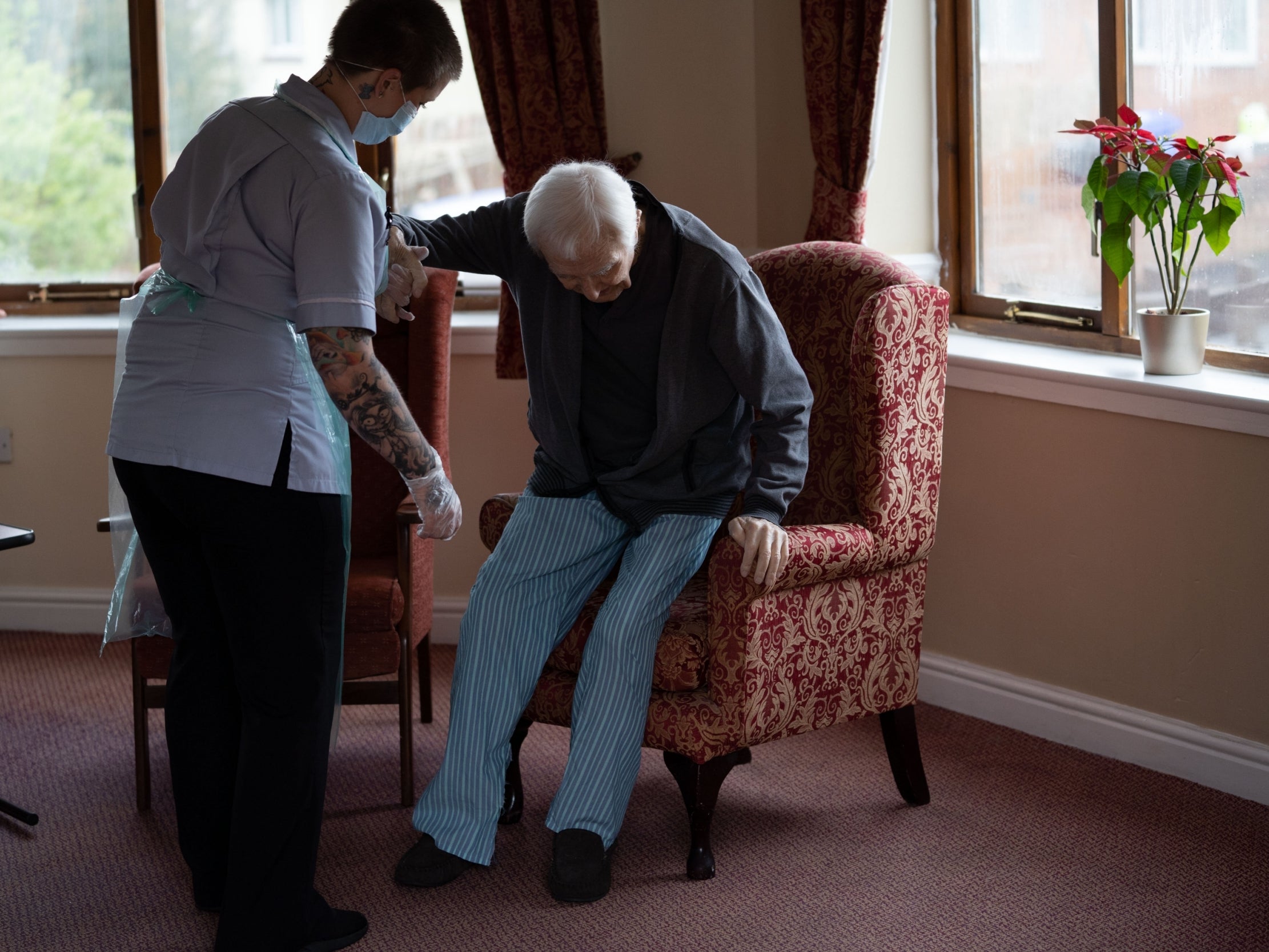
11/18
A carer helps Jack Dodsley, 79, from his chair
Tom Maddick/SWNS
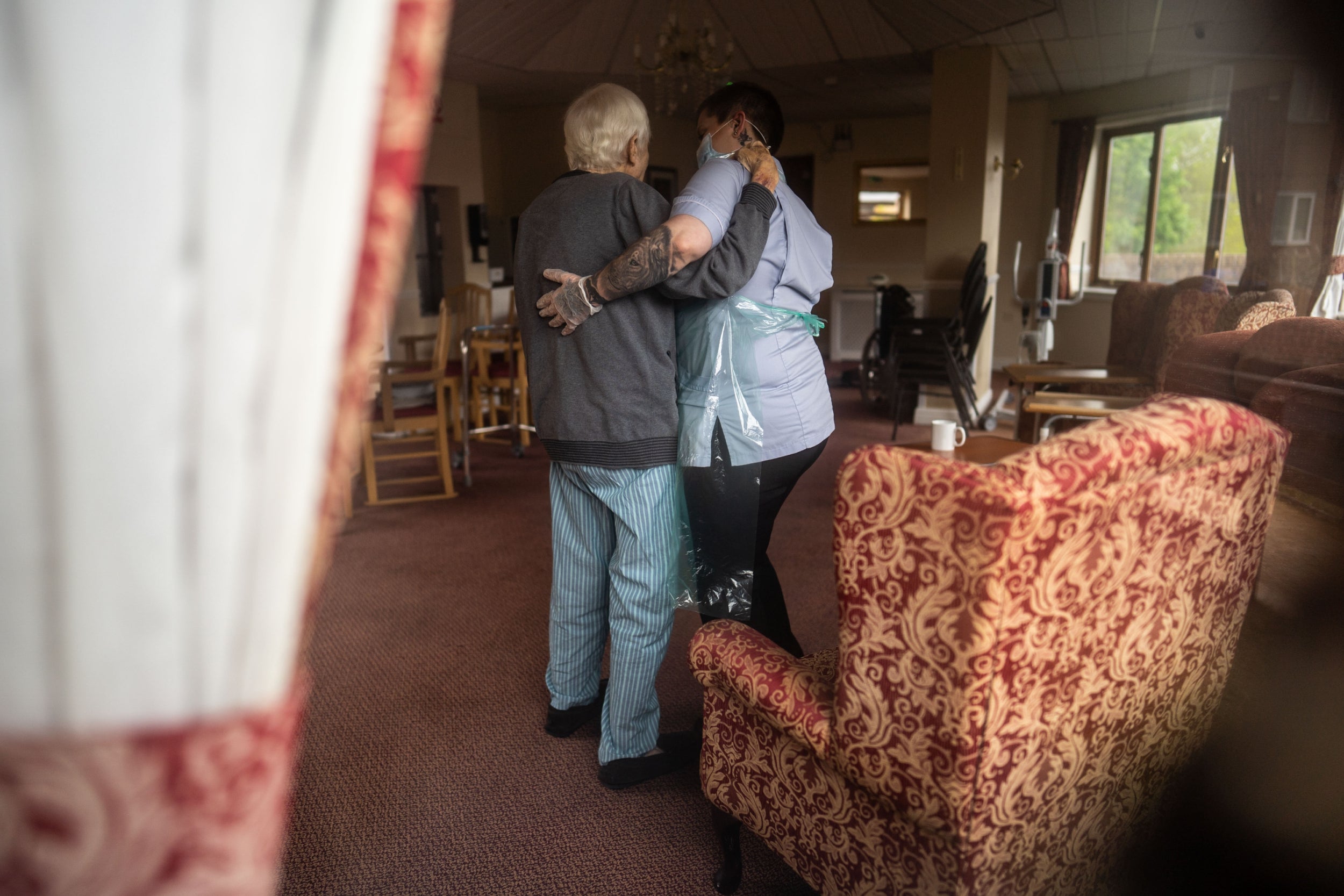
12/18
A carer wearing PPE helps Jack Dodsley, 79
Tom Maddick/SWNS
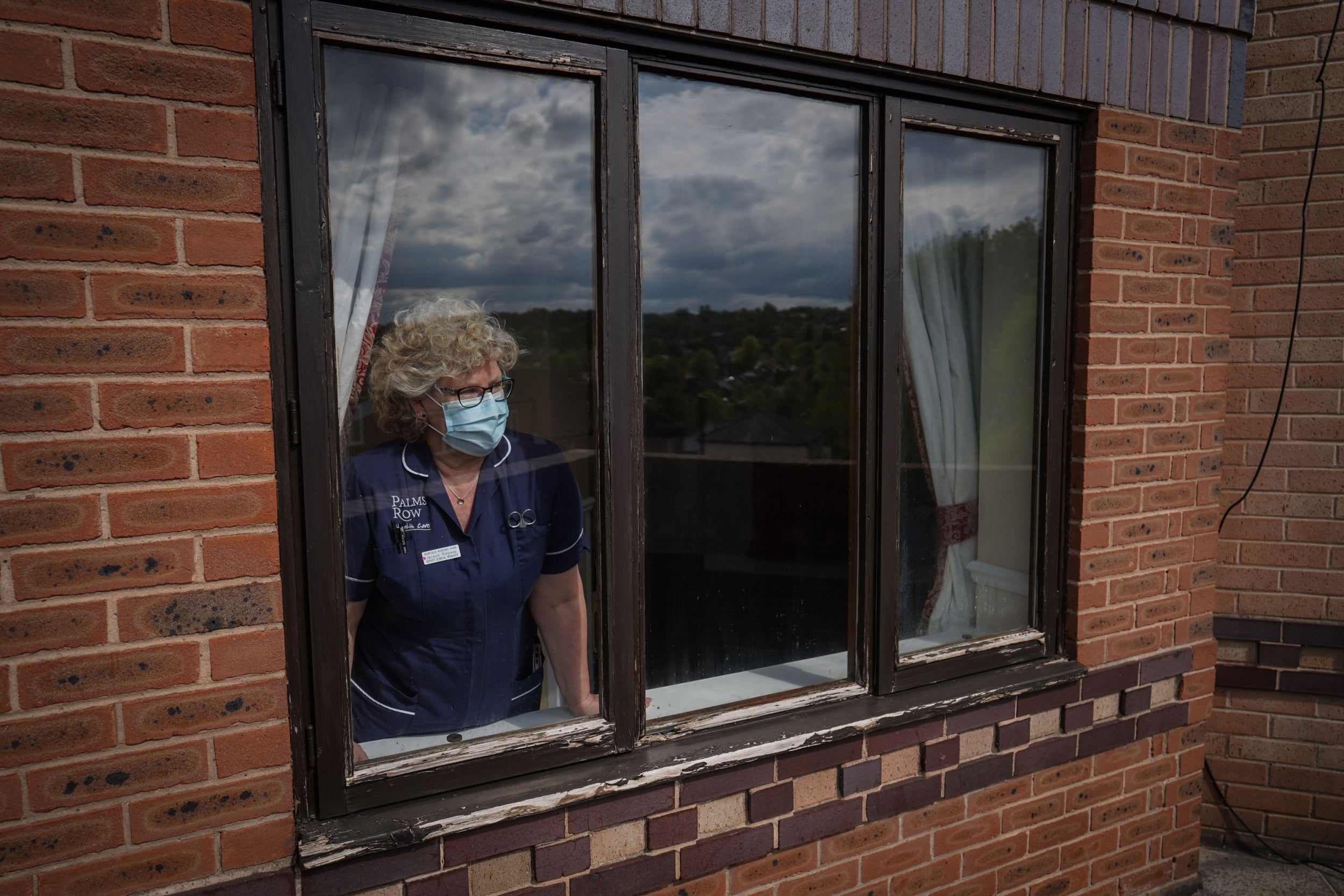
13/18
A staff member at Newfield Nursing Home
Tom Maddick/SWNS
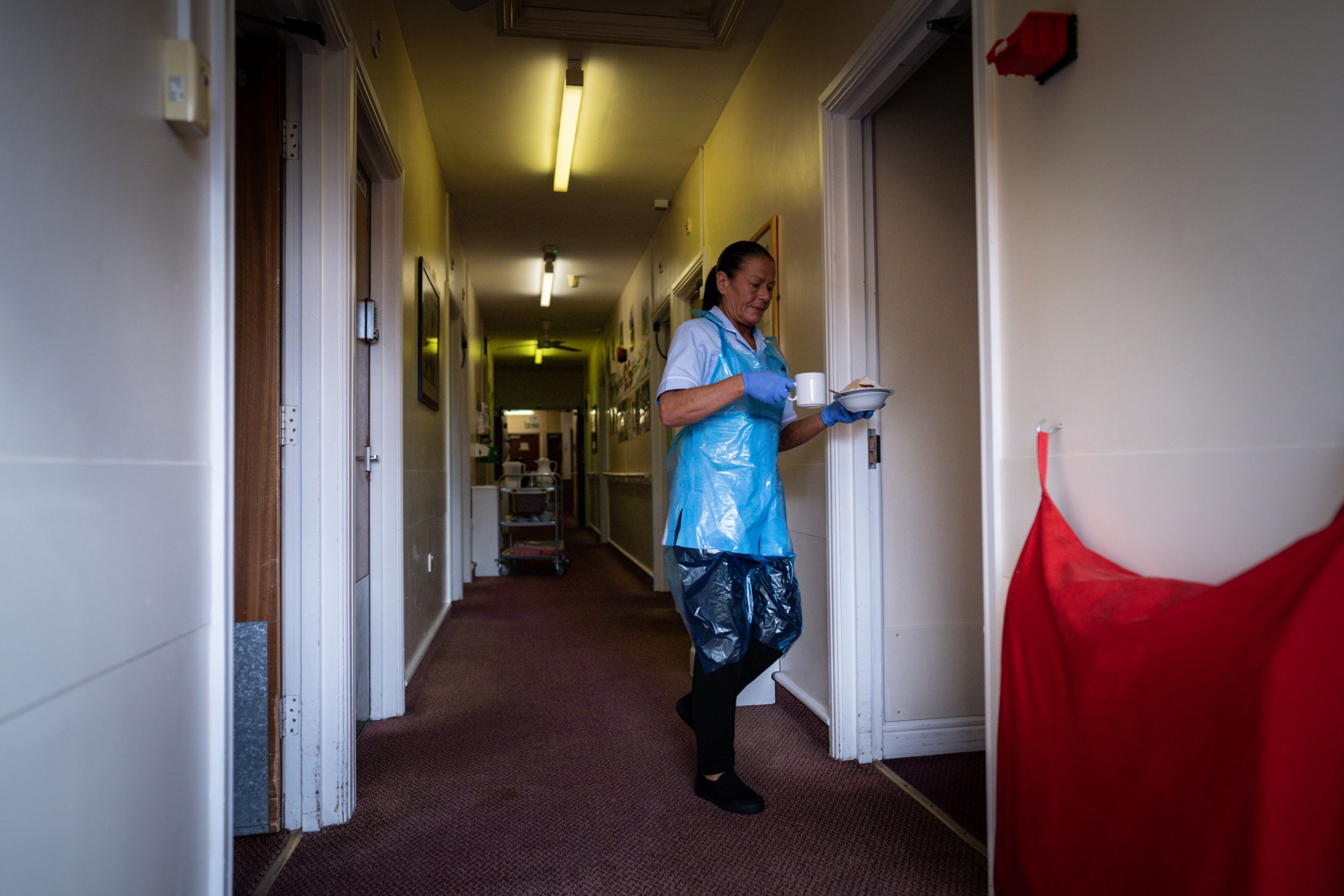
14/18
A carer brings food to a resident at Newfield Nursing Home
Tom Maddick/SWNS
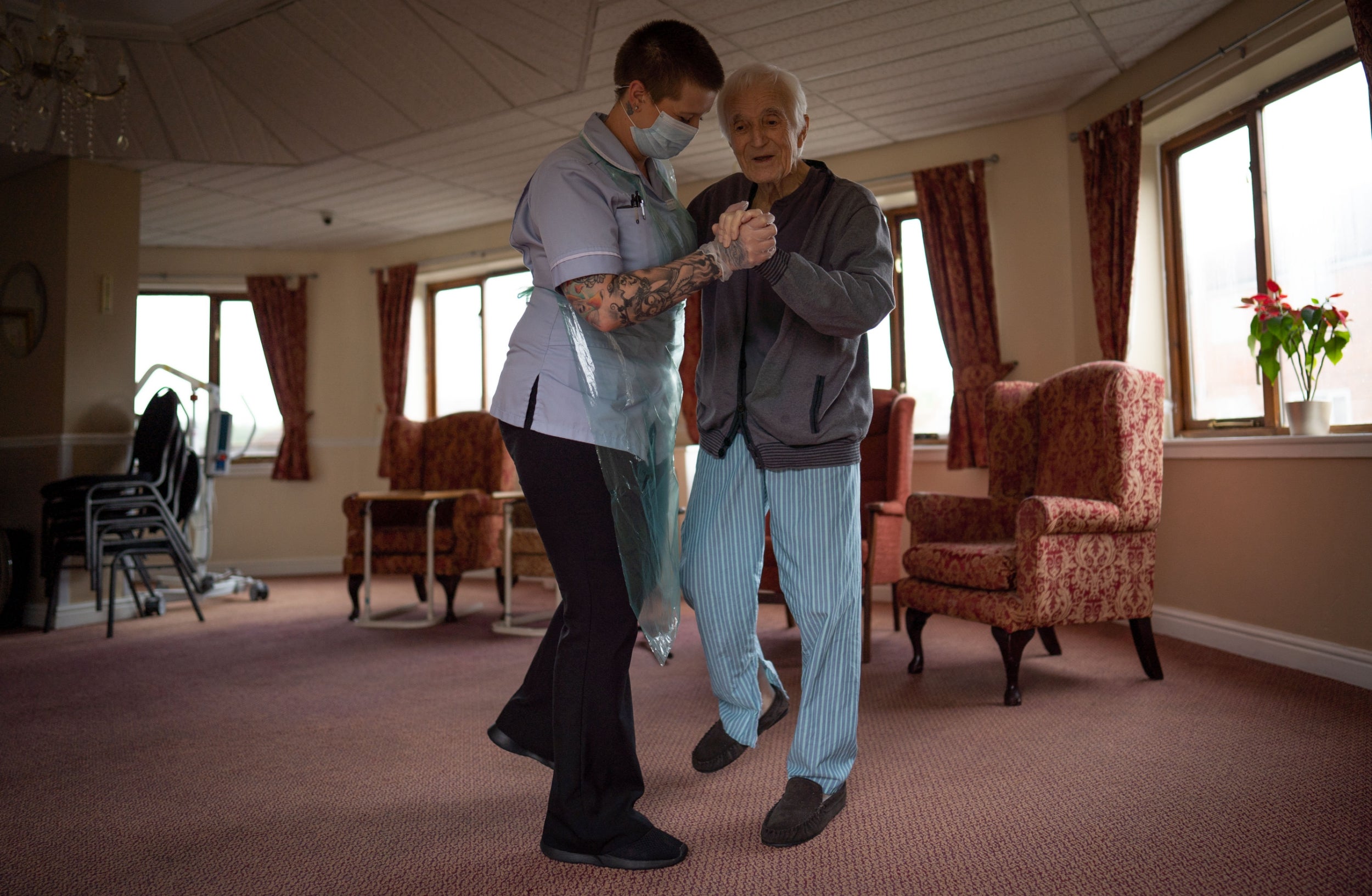
15/18
Jack Dodsley, 79, with a carer in PPE
Tom Maddick/SWNS
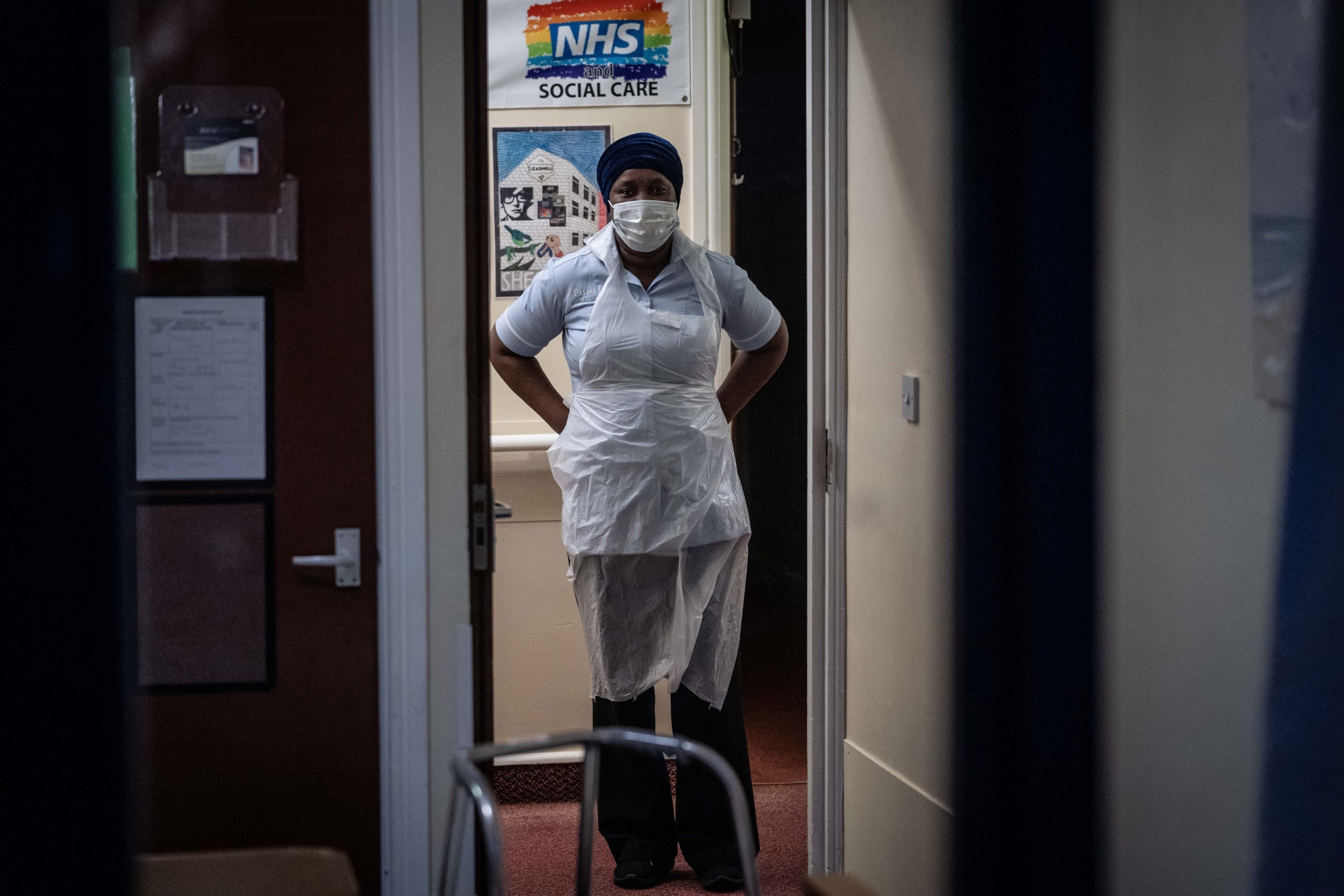
16/18
A staff member puts on PPE at Newfield Nursing Home
Tom Maddick/SWNS
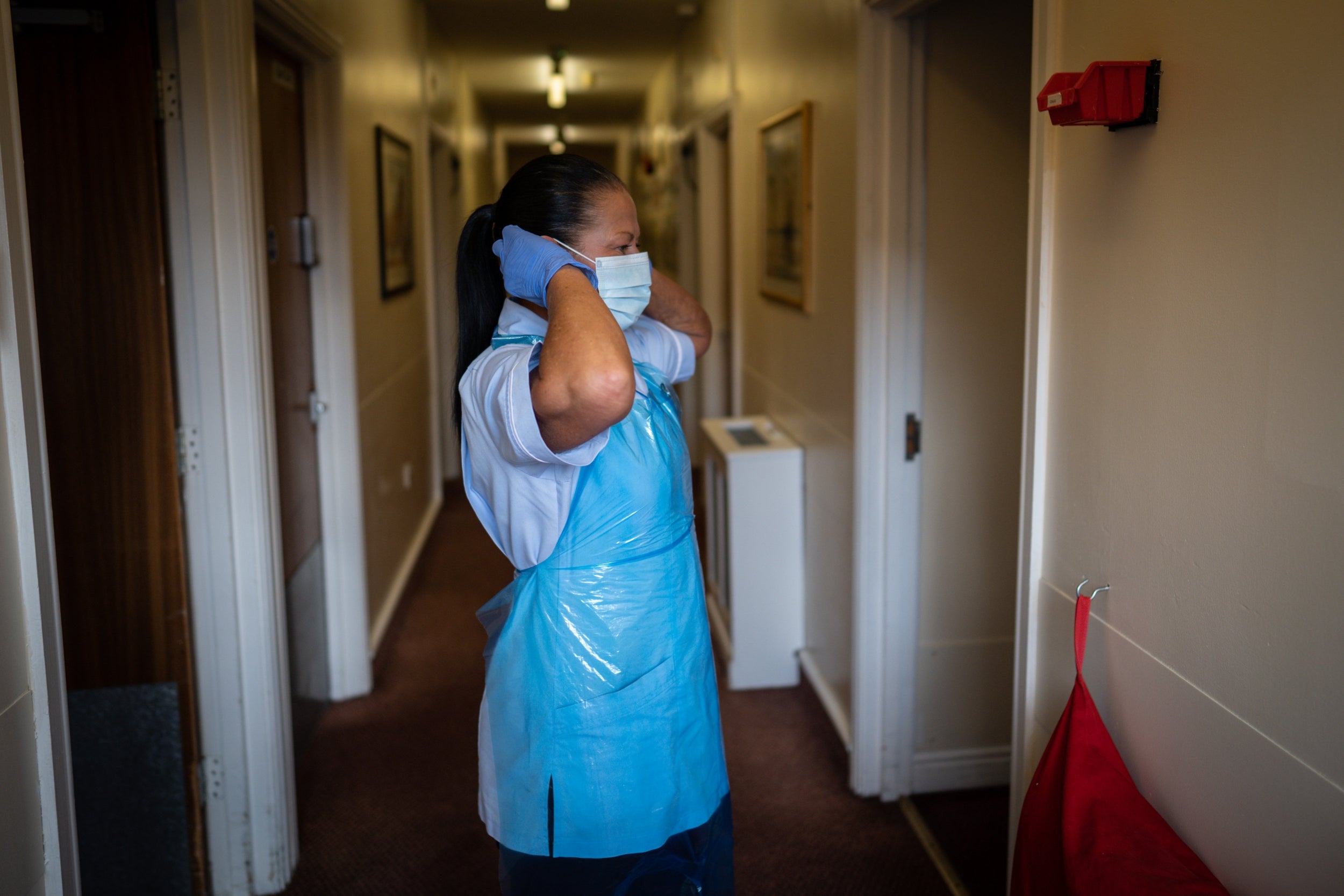
17/18
Jackie Wilson, a healthcare assistant, puts on PPE before she enters a room
SWNS
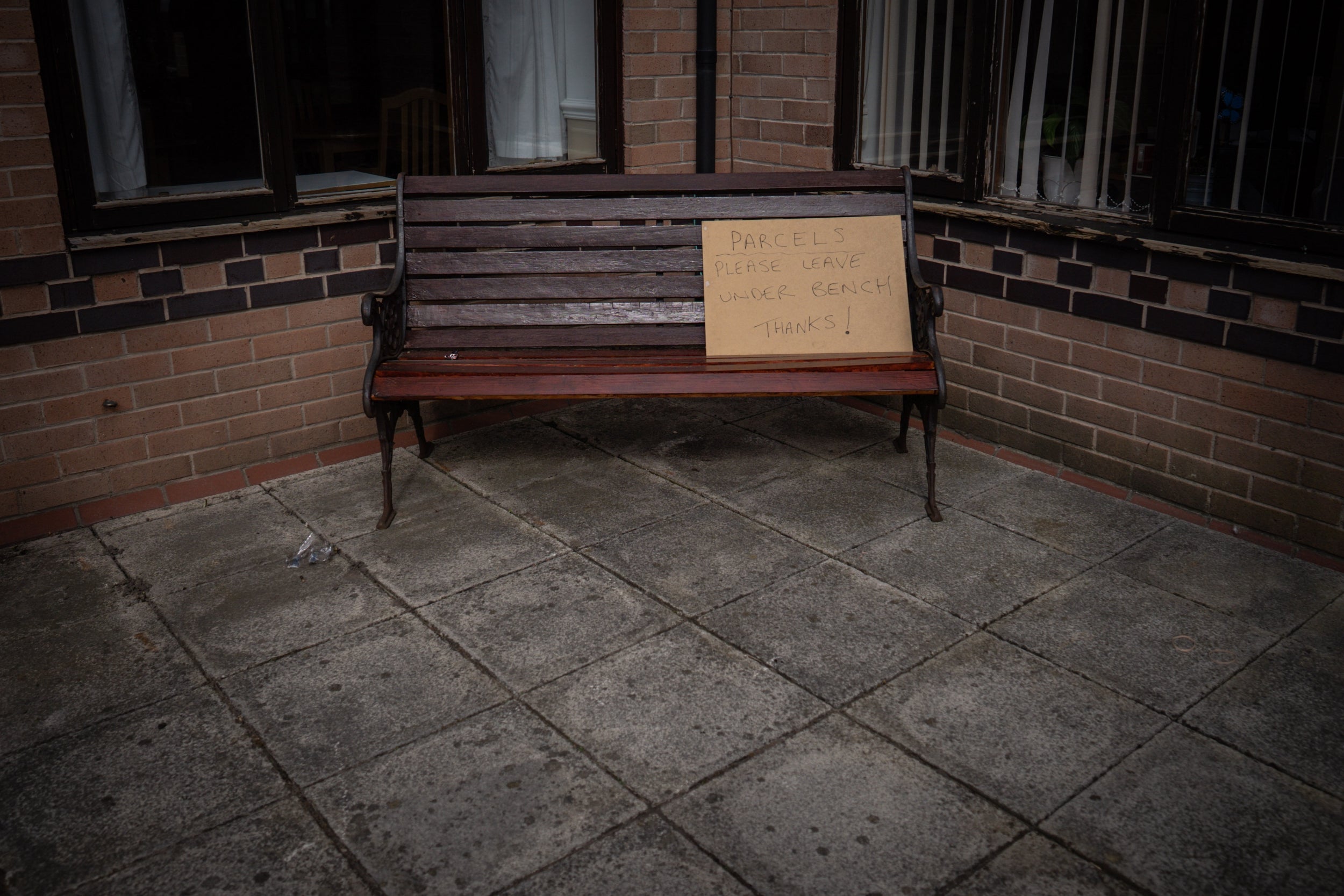
18/18
A bench at Newfield Nursing Home
Tom Maddick/SWNS

1/18
Jack Dodsley, 79, with a carer in PPE at Newfield Nursing Home
Tom Maddick/SWNS

2/18
Jackie Wilson, a healthcare assistant, wearing PPE before going into rooms
Tom Maddick/SWNS

3/18
Jack Dodsley, 79, speaks to a carer at Newfield Nursing Home
Tom Maddick/SWNS

4/18
Carers working at Newfield Nursing Home
Tom Maddick/SWNS

5/18
A care worker wearing PPE opens a drink carton
Tom Maddick/SWNS

6/18
Jack Dodsley, 79, sits with a carer
Tom Maddick/SWNS

7/18
Jack Dodsley, 79, with a carer in PPE
Tom Maddick/SWNS

8/18
A care staff member wearing PPE
Tom Maddick/SWNS

9/18
A staff member at Newfield Nursing Home looks after a resident
SWNS

10/18
A carer wearing PPE uses a speaker
Tom Maddick/SWNS

11/18
A carer helps Jack Dodsley, 79, from his chair
Tom Maddick/SWNS

12/18
A carer wearing PPE helps Jack Dodsley, 79
Tom Maddick/SWNS

13/18
A staff member at Newfield Nursing Home
Tom Maddick/SWNS

14/18
A carer brings food to a resident at Newfield Nursing Home
Tom Maddick/SWNS

15/18
Jack Dodsley, 79, with a carer in PPE
Tom Maddick/SWNS

16/18
A staff member puts on PPE at Newfield Nursing Home
Tom Maddick/SWNS

17/18
Jackie Wilson, a healthcare assistant, puts on PPE before she enters a room
SWNS

18/18
A bench at Newfield Nursing Home
Tom Maddick/SWNS
“Given what we knew at the time about what was happening in places like Italy, in care homes, do you know accept that was high risk and wrong guidance?” he asked Sir Chris.
The latest news on Brexit, politics and beyond direct to your inbox
The permanent secretary replied that his department was “reflective on what we have done”, telling MPs: “I’m not going to say that every single piece of our guidance was correct. We are in a process of learning as we go along.”
But, on the discharge policy, he repeated: “I’m confident that, based on the information we had at the time, our guidance was correct.”
Geoffrey Clifton-Brown, a Conservative, branded the policy “absolutely reckless”, arguing care homes had been the “forgotten cousin” of the crisis.
He demanded to know why detailed advice for the NHS had gone out on 17 March, but similar help for the social care sector had not followed until 15 April.
The committee was also told that 300,000 tasks had been carried out by the army of volunteers signed up by the government at the start of the pandemic.
This is only half the total of 600,000 volunteers who stepped forward, after some protested that they had been given nothing to do.


